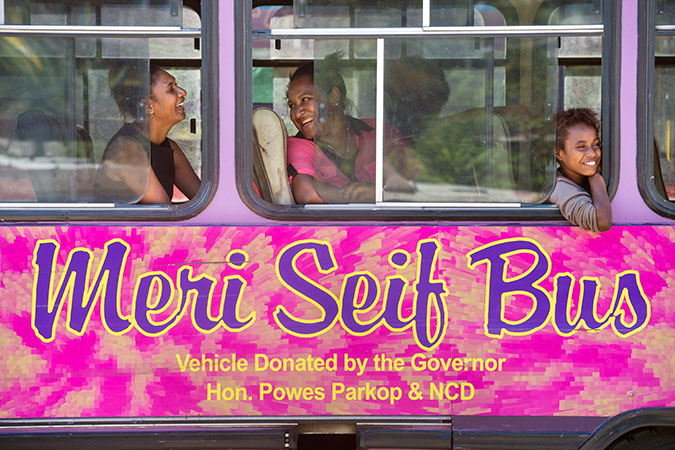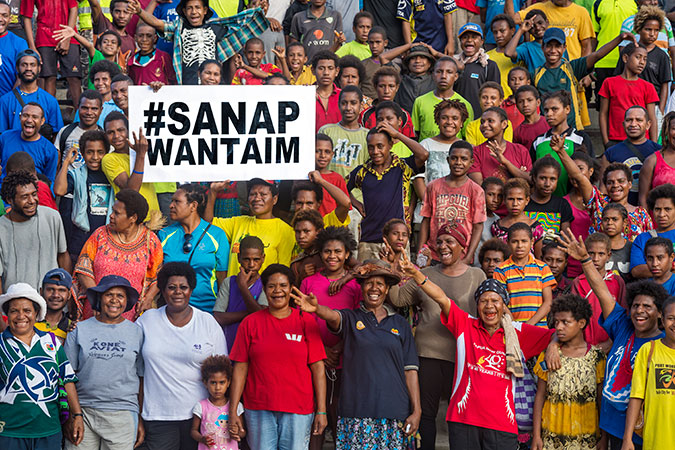Making public transport safe for women and girls in Papua New Guinea
Date:

For women, getting on a bus in Port Moresby, Papua New Guinea, meant an almost guaranteed experience of violence. A scoping study conducted by UN Women in 2014 found that more than 90 per cent of women and girls experienced some form of violence when accessing public transport, including on buses, waiting at bus stops, walking to and from bus stops, or in taxis. This included verbal sexual remarks, inappropriate touching, and indecent exposure in terms of sexual violence, and also extortion, robbery, threats or intimidation.
“I am a single mother of five girls and I want them to live in a society that is free of violence against women,” says Helen from Port Moresby.
Helen has just experienced how different the situation could be, since she started taking the “Meri Seif Bus”—a bus exclusively for women and children—provided as part of the “Safe Public Transport for Women and Children Programme”. The buses provide, with tracking systems and three uniformed bus crews, a safe space where women and girls can travel safely and discuss issues affecting their safety and mobility. From August to December 2015, the “Meri Seif Bus” served 47,000 women passengers traveling between Gerehu and Port Moresby town (a distance of six miles). The success of the initiative led to the addition of a route in February 2016 and another one will be added in December.

UN Women is implementing the Safe Public Transport for Women and Children programme in partnership with Ginigoada Foundation, the Road Traffic Authority and the National Capital District Commission from 2015 – 2017, supported by the Australian Government and the Australia National Committee for UN Women. The programme will upgrade transport infrastructure incorporating gender considerations, including facilities at the bus through public regulations and budget allocations that support efforts to end sexual harassment in public spaces, and ensure increased access to economic opportunities for women. The programme is also training public transportation authorities and bus drivers to prevent violence against women in public transportation and has initiated a campaign, SANAP WANTAIM (STAND TOGETHER) to engage men, women, and particularly youth on the issue.
Patricia*, a 14-year-old female student who took the bus, explained the need for such complementary measures: “I think there should be more programmes in schools, especially at primary schools, on sexual harassment, so that young boys learn how to respect girls. Parents should start teaching boys to be better citizens.”
“We must embrace the rights of women and girls to claim Port Moresby as their own—to walk, shop, travel on buses, go to school, work and enjoy a peaceful quality of life. When the city will be safe for women and girls, it will be safe for everyone,” said Jeffery Buchanan, UN Women Country Director in Papua New Guinea.
* Participant’s name has been changed to protect confidentiality